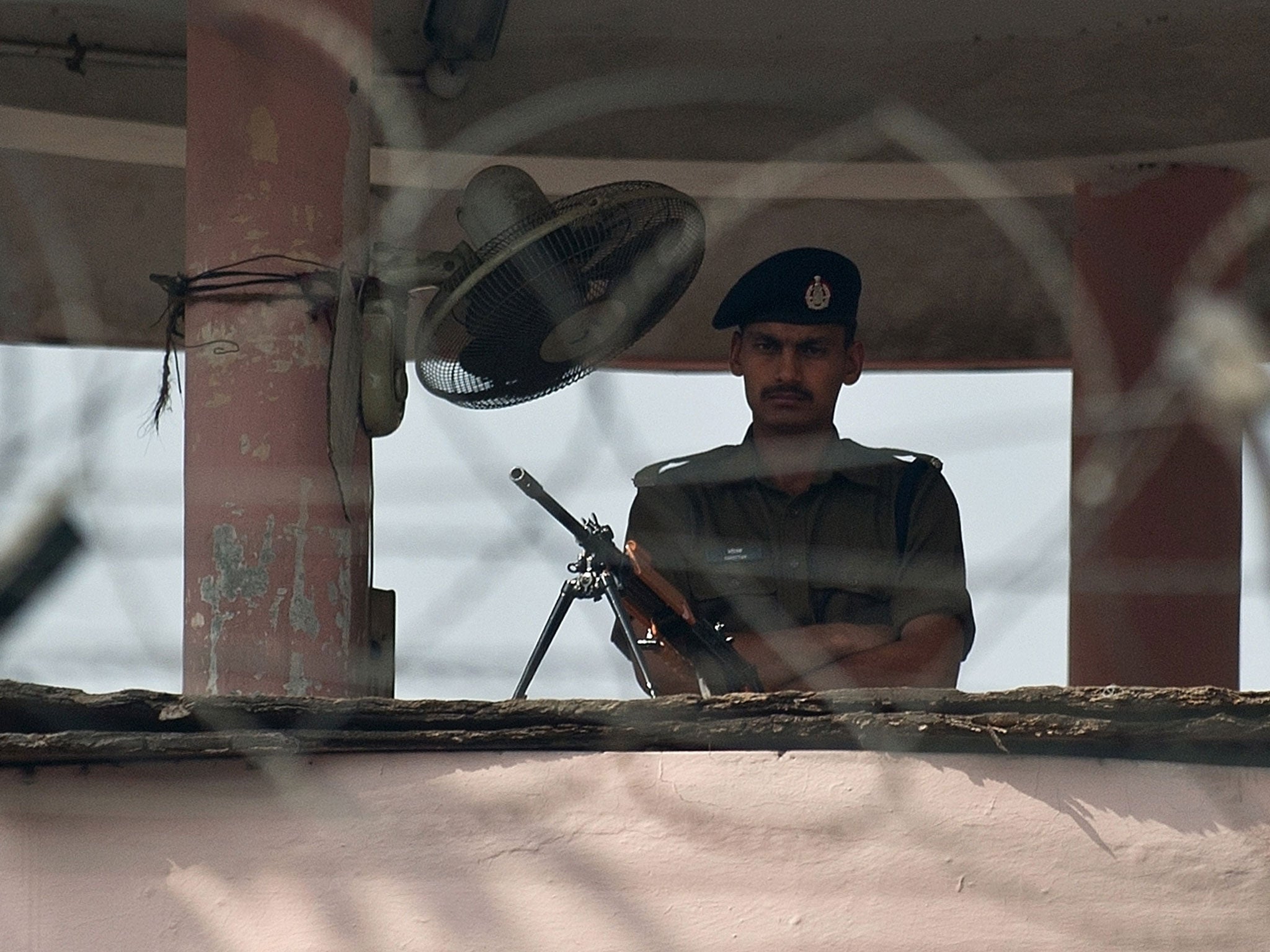Doctors say 'Delhi bus gang-rape leader' died from hanging - but family insists he did not commit suicide

A post-mortem examination carried out on the main accused in the Delhi gang-rape case has suggested he did die as a result of hanging, Indian media has reported.
Three doctors at the All India Institute of Medical Sciences in Delhi carried out the autopsy on Ram Singh, a 33-year-old bus driver, this morning. The body was then handed over to his family, which said they intended to take it to their village in Rajasthan for cremation.
Yet Mr Singh’s family and his lawyer continue to insist he did not commit suicide at Delhi’s Tihar jail. One of his brothers, who went to the hospital to collect the corpse, alleged that he saw an injury on the body and finger marks around the neck.
“My brother was murdered. I have seen injury marks on the body and finger marks on the throat,” the brother, who declined to be identified, told the Press Trust of India.
The body of Mr Singh, said by police to be the leader of the group of males who raped and assaulted a 23-year-old medical student last December, was found early on Monday morning in a cell he shared with three other prisoners.
The jail authorities said an investigation had been launched but that it appeared Mr Singh had hanged himself from a ceiling grille using torn up pieces from his bedding. A spokesman said that Mr Singh had not been under special watch.
Yet many doubt the official story from the jail authorities, who have so far failed to explain how Mr Singh could have hanged himself without waking up the other prisoners or else his actions being heard by a guard.
Mr Singh’s lawyer, AK Anand, could not immediately be reached on Tuesday. However, on Monday, following the news that Mr Singh’s body had been found, he said that just two days before, his client had met with his five-year-old son and had appeared very content.
“We do not think he committed suicide. He was bold, he was very happy, two days ago when I last saw him,” said Mr Anand. “Why would be commit suicide?....It’s foul play on the part of the jail authorities.”
The death of Mr Singh, be it a case of suicide or something else, is deeply embarrassing for the Indian authorities. Following the attack on the physiotherapy student and her male friend, officials had promised swift justice by means of a specially-established fast-track court.
The Associated Press said that in 2011, 68 inmates in India killed themselves and another eight were killed by fellow inmates, according to figures compiled by India’s National Crime Records Bureau. Tihar Jail is badly overcrowded and its population of 12,000 prisoners is nearly twice as big as the jail for designed for.
Mr Singh was one of six males detained after the December attack, from which the young woman died two weeks later. The remaining four adults will continue to be tried at the court in Delhi. The other male, who is aged 17, is being dealt with by a juvenile court.
Subscribe to Independent Premium to bookmark this article
Want to bookmark your favourite articles and stories to read or reference later? Start your Independent Premium subscription today.

Join our commenting forum
Join thought-provoking conversations, follow other Independent readers and see their replies